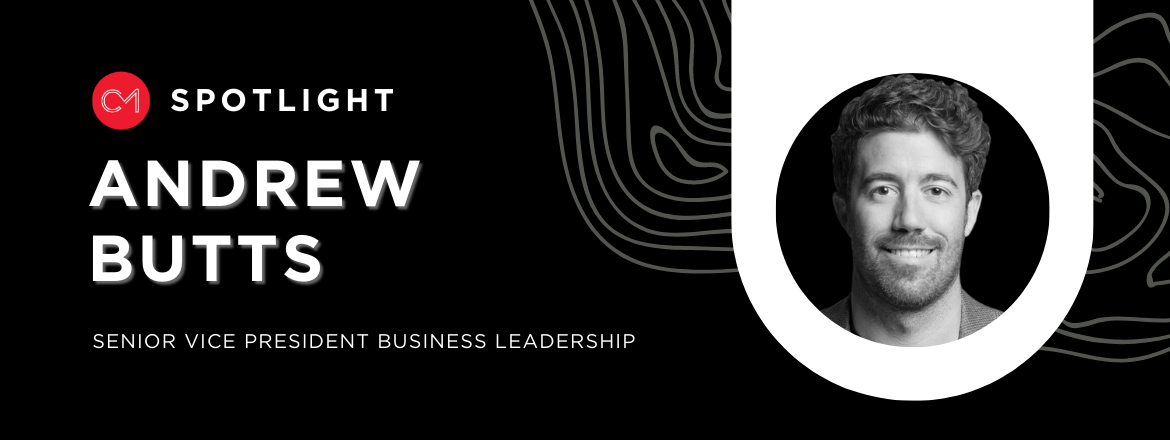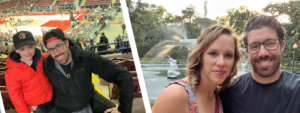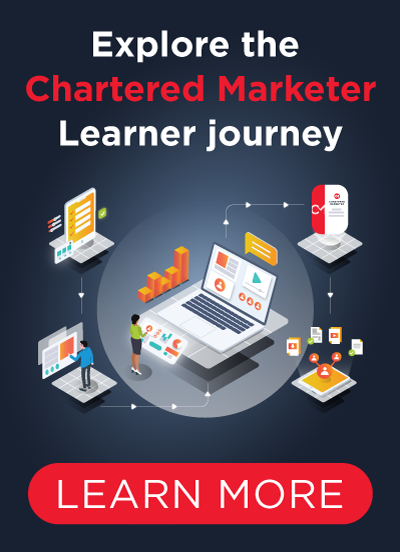
- Apr 14, 2023
- Earl DeMatas
- 0
Andrew Butts, CM, Senior Vice President of Leadership at Cossette Media, discusses driving forces in his career, the impact of interactions, surviving low points, standing firm, and the one constant in marketing.
The Driving Forces
International business was my first exposure to marketing in high school. I gravitated toward it because the combination of business and http://www.romandson.com/brand-vardenafil-usa/ behaviour captured my attention. Eventually, I took a marketing designation, a Bachelor of Commerce at Carleton University, and a second-year course in consumer behaviour. I became fascinated with the distinction of why people make certain decisions and enjoyed the balance between science and business. Influencing, driving change, and understanding the rational and irrational thoughts of why people do what they do, were the driving forces in my pursuit of a marketing career.
Sprott Coop
Carleton’s coop program ran the Sprott School of Business High School Competition, where students across Ontario and Manitoba competed against each other by running virtual businesses. Initially, we were trying to get more schools involved, so the focus was on market research. I was fortunate to gain experience in events and client management while overseeing the program for roughly a year. Shortly after, I got involved in the Department of Foreign Affairs and International Trade. I considered becoming a foreign advisor after working on foreign direct investment, but the pace of government wasn’t for me.
I secured an internship at one of the few shops in Ottawa called Marketing Breakthroughs. Although small, our clients were small to medium-sized businesses where you could drive change. I moved into web marketing, focused on SEO and analytics, and set up some of the first social campaigns. When I realized there wasn’t enough growth in the market, my wife and prix cialis autriche creche-jardindesfees.com I moved to Toronto. I worked at a search-only agency for a short time before eventually joining Neo@Ogilvy.

All Interactions Matter
Sometimes we don’t recognize the impact of interactions in a client relationship. All exchanges, from emails, status calls, and reports to big annual plans and pitches, matter. Once combined, they create your impression of the experience. The same goes for an agency and client relationship. Every team member influences the business relationship. Establishing a positive or personal rapport is important as people like to work with people they like. As a manager and leader, training for accountability and ownership is challenging, but if you’re new and tapping into the industry for the first time, these are skills you need to demonstrate.
Standing Firm
Whether real or perceived, marketing doesn’t have an equal seat at the table compared to other organizational functions. Marketing is often the first cut when things aren’t running smoothly. One challenge we must overcome is that you rarely see CMOs elevated to the CEO role. It goes even further in the agency world as we continue to be driven down from a cost standpoint. The organizations we work with place tremendous value in the work and the services we provide. We need to stand firm and online order prescription viagra demonstrate the value marketing brings and communicate that effectively to internal stakeholders, particularly in the finance community.
I Read
I stay current because I read. I picked skills up from attending a million lunch and learns, digging into reports, and asking questions to the respective partners and providers we worked with to expand my knowledge. I carve out time to read diverse material because you must constantly challenge your thinking and bring new ideas to the table in this business.

Marketing is Change
In marketing, there’s always something new we need to adapt to, plan for, work through or provide. What varies is the notion of evolving our approach to meet consumer behaviour, expand new platforms, or engage with technology differently. Changes come over time, and we constantly adjust our approach to show the significance that marketing brings. Every year something new pops up that you need to respond to or address. The only constant in marketing, is change.
Low Points
I remember when we needed to expand our team significantly when we landed a very prominent piece of business with Neo Media World. Being in a leadership role with a new demanding client was extremely difficult. It was the first time I couldn’t rise to meet a challenge, despite putting everything I had into it. Looking back on it, being asked off the business was a valuable experience that has served me well. Packing everything I learned into nine short months improved my ability to manage stress and communicate effectively. It’s crucial to realize that while it can be stressful, you will survive the low points. Now, I look back on it and feel confident that even though it didn’t work out, it’s okay. Things are never as good or as bad as they may seem.
Career Defining Moments
Two moments have defined my career. The first came when IBM wanted to build a pilot project to be the first market to bring programmatic to Canada. Initially, I was involved in a search capacity, but I leaned into this because there was nobody else. I learned a new discipline, communicated with senior clients weekly and managed the project. It gave me significantly more visibility than I had before. Afterwards, I could pivot into a client leadership role because I seized the opportunity to lead the project when no one else could.
The second was when Ogilvy pitched one of their largest accounts while in a partnership with us. Since I wasn’t actively involved, I chose to stay late and work alongside the executive leadership team spearheading the project. By contributing where I could, I gained favour with the leadership team within Ogilvy’s network. Shortly after, I joined the leadership team, which dramatically drove my career forward. While not extraordinary, both moments were instrumental in gaining credibility and visibility, which certainly helped advance my career.
A Good Place
While we were both part of the Ogilvy network, Brian Fetherstonhaugh wrote The Long View: Career Strategies to Start Strong, Reach High, and Go Far. It’s an easy read, but the fundamental principle is that building a rewarding career is a marathon, not a sprint. Spending time learning in the first phase will equip you to jump in the second, and if everything goes as planned, by the time you get to the third, hopefully, you’re in a position to give back, while doing something you love. It could be volunteering, taking on a board position, or something you are passionate about.
 I want to acknowledge the people who’ve supported and helped advance my career. I owe some of my success to having great mentors and learning and working with amazing folks. It helps to have great mentors. You can move to a new company and chase the money or continue working for a manager you love. As long as you’re learning, you’re in a good place. The rest will come.
I want to acknowledge the people who’ve supported and helped advance my career. I owe some of my success to having great mentors and learning and working with amazing folks. It helps to have great mentors. You can move to a new company and chase the money or continue working for a manager you love. As long as you’re learning, you’re in a good place. The rest will come.
Andrew Butts, CM
Senior Vice President, Business Leadership, Cosette Media
Tags: CM Graduates


